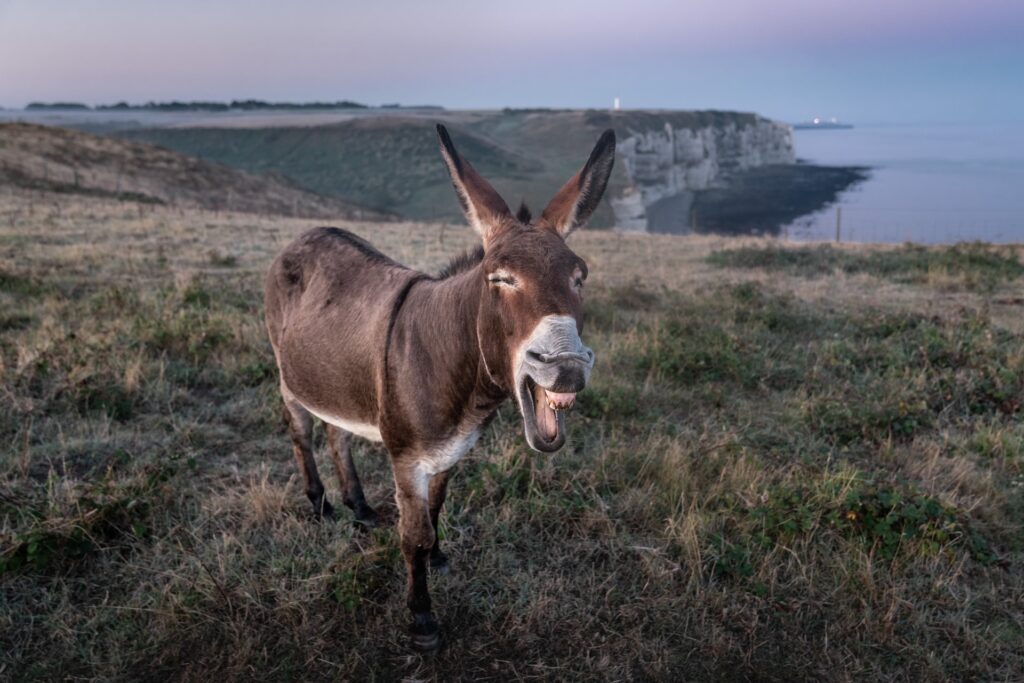No need to climb mountains to find wisdom.
Wisdom is closer than you might think.
It takes Allah eight ayats to summarize the wisdom of Luqman.
In them, we’ll find a series of interconnected topics ranging from our relationship with God to how we communicate.
There are many stories about Luqman where reality gets mixed up with fantasy.
Fortunately for us, part of his wisdom (the best part I guess) was captured in the Quran.
Luqman in the Quran
Allah didn’t mention many prophets and yet, He chose to name Luqman.
Why? What makes Luqman so special?
If Allah honored Luqman by recording the conversation with his son, it must be timeless lessons for all of us.
Lesson 1: Gratitude

In Surah Luqman, Allah said:
“And We had certainly given Luqman wisdom [and said], “Be grateful to Allah.” And whoever is grateful is grateful for [the benefit of] himself. And whoever denies [His favor] – then indeed, Allah is Free of need and Praiseworthy.”
[Quran 31:12]
When we think of a wise person, we imagine someone who knows a lot.
But here Allah is telling us that, before knowledge or anything else, the height and the beginning of wisdom are gratitude.
I wrote about gratitude in the ‘Believer Mindset’ but here are some additions.
Gratitude is giving credit to someone else. And when you do that, you are humble.
Gratitude and humility go hand in hand.
When we acknowledge the favors that Allah showers upon us, we unlock the door of abundance- more blessings, energy, wisdom, knowledge, positivity…
It’s a promise of Allah:
“If you are thankful, I will give you more.”
[Quran 14:7]
Lesson 2: Disbelief

“And [mention, O Muhammad], when Luqman said to his son while he was instructing him, “O my son, do not associate [anything] with Allah. Indeed, association [with him] is a great injustice.”
[Quran 31:13]
Luqman’s first advice to his son is don’t do shirk (association) with Allah.
In Arabic, shirk (association) and shukr (gratitude) have the same base.
The ayat started with gratitude and now Allah is talking about association. Why is that?
If we deny the favors of Allah, that means we attribute them to someone else or ourselves.
Worshiping idols is not the only form of association and disbelief.
Worshiping oneself is also one:
“Have you seen he who has taken as his god his [own] desire”
[Quran 45:23]
The foundation of our relationship with Allah is gratitude. This is how the Quran starts in Surah Al-Fatihah (with Al-Hamdulilah):
“All praise is due to Allah, the Master of the Worlds.”
[Quran 1:1]
When gratitude is not there, only arrogance is left.
We consider ourselves the providers and we are grateful to ourselves.
Only one word stands between faith and disbelief: it’s gratitude.
Lesson 3: Parents-Children

“And We have enjoined upon man [care] for his parents. His mother carried him, [increasing her] in weakness upon weakness, and his weaning is in two years. Be grateful to Me and to your parents; to Me is the [final] destination.”
[Quran 31:14]
This ayat is also about gratitude- to Allah and our parents.
It’s not anymore Luqman who’s counseling his son, it’s Allah commanding us to be good to our parents.
This switch in the speech highlights the importance of this point.
Most of us don’t remember this part of our life when our moms carried us through ‘strain after strain’.
Allah is reminding us of the greatest contribution of mothers. That alone deserves our eternal gratitude.
The contribution of fathers happens when they become wise. They do what Luqman is doing with his son: they counsel and advice in a loving way.
If we don’t teach children to be grateful to Allah, most likely they won’t be grateful to their parents.
And even if parents are pushing their children to turn away from Allah, the children should always be good company for them.
Nevertheless, children need to follow the path that leads them to God.
“But if they endeavor to make you associate with Me that of which you have no knowledge, do not obey them but accompany them in [this] world with appropriate kindness and follow the way of those who turn back to Me [in repentance]. Then to Me will be your return, and I will inform you about what you used to do.”
[Quran 31:15]
In this excellent khutbah by Nouman Ali Khan, you’ll find more about these 4 ayats of Luqman’s passage.
Lesson 4: Allah Is All-Knowing

“[And Luqman said], “O my son, indeed if wrong should be the weight of a mustard seed and should be within a rock or [anywhere] in the heavens or in the earth, Allah will bring it forth. Indeed, Allah is Subtle and Acquainted.”
[Quran 31:16]
Imagine that, somewhere in the universe, there is a seed inside a boulder.
This is the only clue I give you. Now I’m asking you: go and find it!
The seed is something so unknown, well hidden, and simply impossible to find. But Allah can bring it out.
Nothing can be hidden from God.
How is that supposed to make us wiser?
In Islam, we can’t portray God. We must sense Him to grasp a tiny fraction of who He is.
The story of the seed reveals the power and the precision of God.
Something that is beyond our imagination and that we can never compete with.
When you know your Master, you can submit to Him and follow up with the coming commands.
Lesson 5: Prayer, Promoting Good, and Preventing Evil

“O my son, establish prayer, enjoin what is right, forbid what is wrong, and be patient over what befalls you. Indeed, [all] that is of the matters [requiring] determination.”
[Quran 31:17]
Once you have an idea of who God is, show your gratitude by establishing the prayer.
Prayer will put in you a sense of justice- command the good and forbid the evil.
Luqman’s advice started with the duties towards God and parents. Now we’re moving to our duties towards society.
The prayer will make you stand up for the truth. But it will also put you in trouble.
It’s here where patience comes to play.
Take a second to think about the life of our Prophet. As soon as he started calling people to the truth, troubles showed up.
To keep facing those challenges with the same energy day in and day out, he needed to pray more.
That’s why night prayers were mandatory only on him. His mission was the heaviest- spreading the word to humanity as the last messenger!
During the night, he has this beautiful conversation with Allah. He’s showing gratitude, rejuvenating, and gaining strength.
During the day, he’s facing people. It can be ugly, depressing, and insulting. He uses the energy of the night to show patience and resilience during day time.
By the end of the day, he’s depleted and he needs to start the same process again.
Gratitude and patience go hand in hand. And prayers are the link between the two.
Prayer is this bridge that transforms our relationship with God to power for good.
Lesson 6: Body Language

“And do not turn your cheek [in contempt] toward people and do not walk through the earth exultantly. Indeed, Allah does not like everyone self-deluded and boastful.”
[Quran 31:18]
It’s not enough to be good from the inside. The outside is also important.
Promoting good and preventing evil comes with a certain body language.
The face of the one who is grateful and establishes prayer doesn’t display negative emotions such as pride or disgust.
Our facial expressions are a universal language and a practical means of communication.
Even if we were never taught facial expressions, everyone is able to interpret them and communicate through them.
Similarly, walking on earth posing or showing off doesn’t suit the believers.
It sends the message that we have an imaginary perception, fooling ourselves about how important we are.
Gratitude leads to humility. And humility leads to the right body language.
Lesson 7: Pace and Voice

“And be moderate in your pace and lower your voice; indeed, the most disagreeable of sounds is the voice of donkeys.”
[Quran 31:19]
This ayat balances the previous one. We need to have self-respect when we carry ourselves.
But walking with humility doesn’t mean to look like someone who’s just been beaten.
Umar Ibn Al-Khattab understood what humility is about. When he saw a man walking and bending his head down, Umar said to him:
“Raise your head, man! Humility is not in necks, it’s rather in hearts!”
The last advice of Luqman is to lower the voice.
After fixing our body language, we need to fix the way we communicate.
It’s not a coincidence that Luqman mentioned body language before the voice.
One of the essential components of communication is the speaker.
We pass judgments on people before they even open their mouths.
We scan people and make an opinion about them in a split of a second.
So to promote good and forbid evil, having the right body language is critical.
Without it, no one will pay attention to our message, no matter what we say.
Once we worked on our body language, we can deliver the message by lowering our voice.
In 2 ayats, Allah gives you an entire course in communication!
Final Words on the Wisdom of Luqman

Clifford Stoll said:
“Knowledge is not understanding
Understanding is not wisdom.”
We can see it all around us today.
Conflicts are led by knowledgeable people. Wars are engaged by knowledgeable people.
Let’s don’t be like the ones who just carry knowledge but don’t benefit from it.
In the end, this is what wisdom is about- beneficial knowledge that is acted upon.
The only way to be wise like Luqman is to know profound truths and to live by them.
Popular Articles
- How to Enjoy Salat and Make it Meaningful
- Mongols Invasions: Some Forgotten Lessons to Today’s Muslims
- For or Against Vaccines? That’s Not Really the Question
- Are Muslims Meant to Be Sleep Deprived?
- Islamic Psychology: A Model Where Faith Has Its Place
- Muslims Judging Each Other: Why and How to Be Less Judgy
- The Certainties of Muslims in Uncertain World
- Allah According to Allah: The Beauty Behind the Verse of Light
- Blindness: From the Invisible Gorilla to the Quranic Perspective
- How to Make People Change their Mind: Persuasion!
